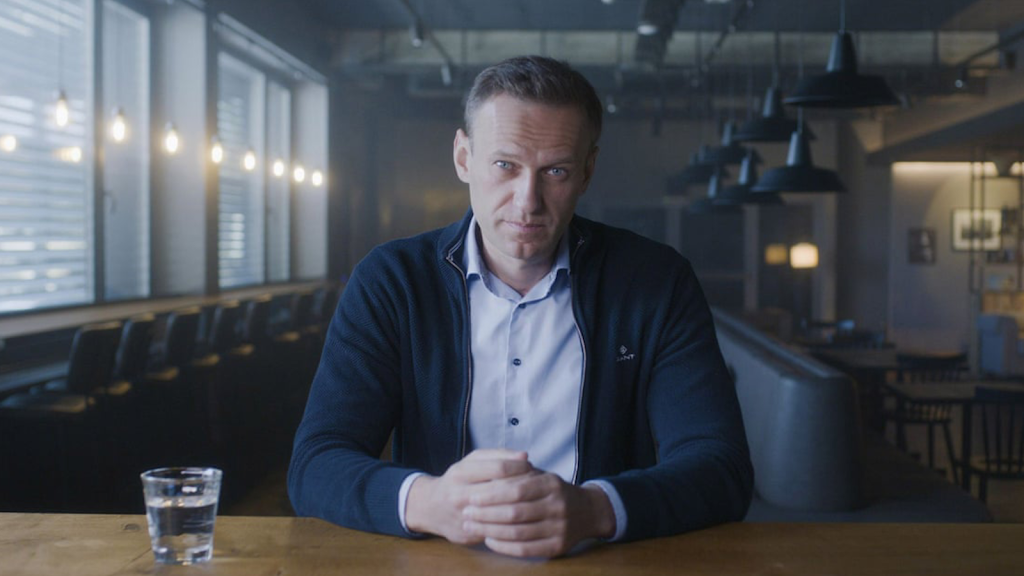
The filmmaker Daniel Roher poses a sinister question to his subject in the first seconds of “Navalny,” the Oscar-winning 2022 documentary about Russian opposition leader Aleksei A. Navalny.
The voice from behind the camera asks, “If this does happen, what message do you leave behind to the Russian people if you are killed?”
Navalny Storyline
Navalny sighs and his ice-blue eyes narrow slightly. With a strong English accent, he says, “Oh, come on, Daniel.” Not at all. Not in a manner. It appears as though you are filming a movie about my demise. He stops, then resumes. “I’m prepared to respond to your inquiry, but could you kindly ask about Movie No. 2 instead? Let’s turn this film into a thriller.
He ends with a sardonic smirk, “And in the case I would be killed, let’s make a boring movie of memory.”
One of President Vladimir V. Putin’s sharpest opponents, Sergei Navalny, passed away in a federal jail in the Arctic Circle on Friday, according to Russian officials. The official narrative, which was made public on Friday morning, stated that he had passed out while strolling about the yard. The reports were openly questioned by Navalny’s chief of staff, Leonid Volkov, who wrote on X, “If this is true, then it’s not ‘Navalny died,’ but ‘Putin killed Navalny,’ and only that.” But I have zero faith in them.
You may be doubting if you watched the documentary, which is currently available to view on Max. “Navalny” primarily centers on a plot to poison Navalny in 2020, perhaps using Novichok, a nerve agent Volkov referred to as “Putin’s signature poison.” After the film’s unexpected 2022 Sundance premiere, it gained notoriety for an extended sequence in which Navalny and his group trick Konstantin Kudryavtsev, a Russian agent, into admitting to the poisoning.
After a scarily short recovery, Navalny relocated to Germany with his family. However, on January 17, 2021, he went back to Moscow and was arrested right away. The video depicts demonstrations following his apprehension in addition to throngs of admirers outside the airport. In the months that followed, Navalny faced numerous charges, including fraud, embezzlement, and extremism. At the time of his alleged demise, he was incarcerated for a lengthy period of time.
That is exactly what he requested—a thriller. A gripping film, “Navalny,” comes to a vague and undefined finale. Each documentary seems to be about someone who may already be dead by the time you see them on TV, but “Navalny” has an especially heavy veil of mortality because the main character has essentially already passed away. He understands this and is resentful of it because his charm and exuberance make him very appealing.
A woman asks Navalny whether he’s growing tired of people asking him about his history when he’s lounging approximately two thirds of the way through in between interviews with Roher. No, Roher is free to ask anything he wants, Navalny tells her in Russian. He appears angry, she says, but that’s okay.
“It’s just that I realize that he’s filming it all for the movie he’s going to release if I get whacked,” Navalny says as he pauses to clarify.
He wasn’t entirely accurate. “Navalny” made its streaming debut in the United States a few months after it debuted, and it quickly gained popularity there. While incarcerated, Navalny maintained his connection to the outside world. His social media presence was well-established, and throughout his incarceration, he and his group—who are currently living in exile—continued to publish. The fact that “Navalny” went on to win best documentary feature at the 2023 Oscars in March 2023 is more proof that everyone was paying attention.
However, watching “Navalny” after hearing of his passing is unsettling if it wasn’t meant to be a postmortem. Knowing what could happen, he appears determined rather than terrified. On his return flight to Moscow, he looks nervous and focused, but he also cracks jokes about the weather with other passengers, accepts their well wishes, and watches “Rick and Morty” as they descend. You understand that this man is steadfastly unflappable.
In the film’s epilogue, Roher asks Navalny once more what message, if any, he would leave for the Russian people in the event of his imprisonment or perhaps death. “My message for the situation when I am killed is very simple: Not give up,” Navalny replies in English. Roher requests that he repeat his response in Russian since he senses there is more to the sentiment.
According to the subtitles, Navalny speaks quickly and fluently in Russian, saying, “Listen, I’ve got something very obvious to tell you.” He’s gaining momentum while gazing directly into the camera. It is forbidden for you to give up. It indicates us extreme strength if they choose to kill me. We must use this power to keep going and never lose up since these wicked guys are oppressing a powerful force. We are unaware of our true strength.”
After taking a breath, Navalny begins. “Only inaction on the part of good people is required for evil to triumph. Thus, don’t be idle. Steely eyes, he fixes a steely glare on the camera.
And suddenly a big happy smile spreads across his face.
Visit our celeb forum Home Page to get the latest information on the Entertainment articles like this one.
Read More
Who’s Taylor Swift Dating Now 2024? Boyfriend Travis
Taylor Swift Age, Height, Fig, Bio, Networth, Albums And Achievements

